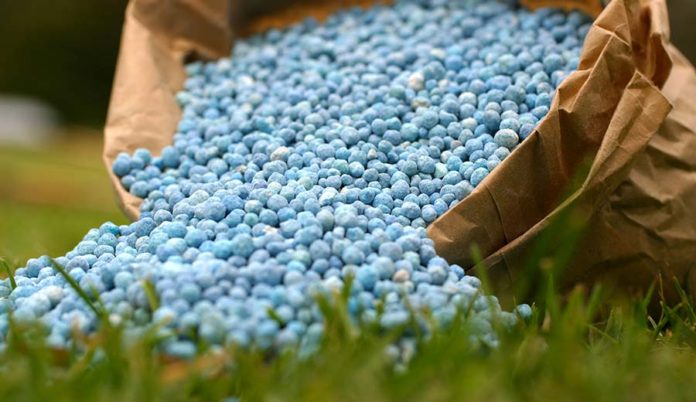Fertiliser prices are driving up food prices in Africa and the Namibian government says it will welcome a donation of fertilisers from Russia, its ambassador to that country has said.
“Namibia is faced with a challenge of high cost of crop production inputs, including fertiliser. If extended to Namibia, the Russian offer to transport fertiliser for free would go a long way in mitigating this challenge,” Clemens Handuukeme Kashuupulwa, the ambassador, said.
Food and fertiliser costs spiked due to the Russian/Ukraine war.
The Namibian envoy said that restrictions on Russian fertiliser exports to Africa had increased the cost of fertilizers in Nambia by more than 50%, and “ultimately increasing the cost of production and subsequently high cost of food.”
The southern African nation can boast its vast swathes of fertile farming lands and could cooperate with Russia on grain production, he suggested. A gift of fertilizers would further bolster its national food security and food self-sufficiency, the diplomat said.
Farmers in Namibia have turned to animal poop as a substitute for commercial fertiliser – amid soaring prices.
The demand for manure has skyrocketed in recent weeks, as farmers rush to find fertiliser alternatives ahead of the United States spring planting season.
The new interest is so strong that instead of paying to remove animal waste, some livestock farmers are making side businesses out of selling manure.
Some cow farms even have future waste sold out through the end of 2022. The unusual demand for animal poop comes amid major turmoil in the global agricultural sector.
Russia’s invasion of Ukraine has hampered fertiliser supply and lifted prices dramatically over the past month.
The rally across nutrient prices also stands to cut down on total farming acreage for farmers unable to stomach higher costs.
That could exacerbate food shortages already weighing on the global market. The conflict powered a sharp increase in wheat prices over the past month. If the fertiliser crunch lasts, the global food supply could be hindered for years, as farm yields struggle to fill the hole.
Manure offers some reprieve for fertiliser-desperate farmers, but its use comes with serious risks. For one, animal dung cannot fully replace commercial nutrients.
Sowing crops with manure could pose serious problems for farms if it contaminates groundwater or nearby streams, they added.
The benefits might still outweigh the risks.
With the Ukraine/Russia conflict raging on with no end in sight, animal excrement is looking more and more attractive for struggling farmers.
Namibia imports millions worth of fertiliser every year. Last year, it imported N$326 million and over the past five years, it has imported N$1.1 billion.









